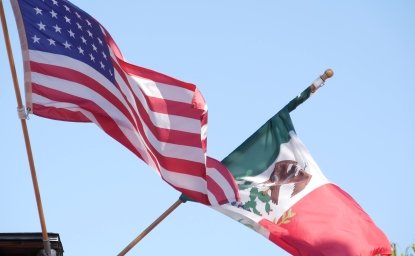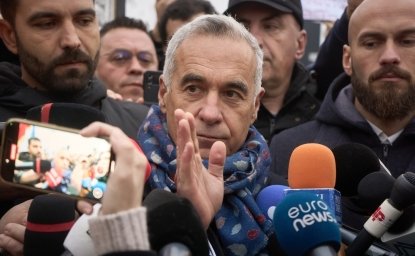What’s going to happen in Venezuela after the Elections?
As the presidential elections approach in Venezuela, between the candidate from the Coalition for Democratic Unity, Henrique Capriles and Hugo Chávez, Venezuela’s president for the last 13 years, the question of what will happen, depending on the outcome of the elections, is more latent than ever.
A poll performed by Varianza, the most rigorous poll in the country, shows that Chavez is ahead of Capriles by two points. Cynthia J. Arson, director of the Latin American Program at the Wilson Center, argues that if Chavez is defeated in the elections, supporters will not hand over power easily, “first, there are the declarations of some senior government officials that will never allow a government transition.”
Chavez still has a lot of support in the country despite the fact that violence in Venezuela has increased over the last years “on the one hand his government has aided thousands of Venezuelans with social programs funded by the oil revenues, that’s a fundamental source for his support.”
To watch the interview, go here.
For information about our next event on the Venezuelan elections go here.
¿Qué pasará en Venezuela después de las elecciones?
A medida que se acercan las elecciones presidenciales en Venezuela, entre el candidato de la mesa de la unidad democrática, Henrique Capriles y Hugo Chávez, el presidente del país durante los últimos 13 años, la interrogante de qué pasará, dependiendo del resultado de los comicios, está más latente que nunca. La encuesta Varianza, una de las más confiables en Venezuela, ha mostrado que Chávez está dos puntos sobre Capriles, mientras que otras demuestran lo contrario.
Cynthia J. Arnson, directora del programa Latinoamericano del Wilson Center, argumenta que si el mandatario Venezolano resulta ser el perdedor, sus partidarios no entregarán el poder fácilmente, “primero las declaraciones de unos altos funcionarios del gobierno que nunca permitirían una transición hacia otro tipo de gobierno”.
A pesar de los altos niveles de violencia en el país, el apoyo hacia el mandatario es alto, según Arnson “por un lado ha beneficiado a miles y miles de Venezolanos con los programas sociales financiados con la renta petrolera, eso es una parte muy importante de apoyo que tiene.”





